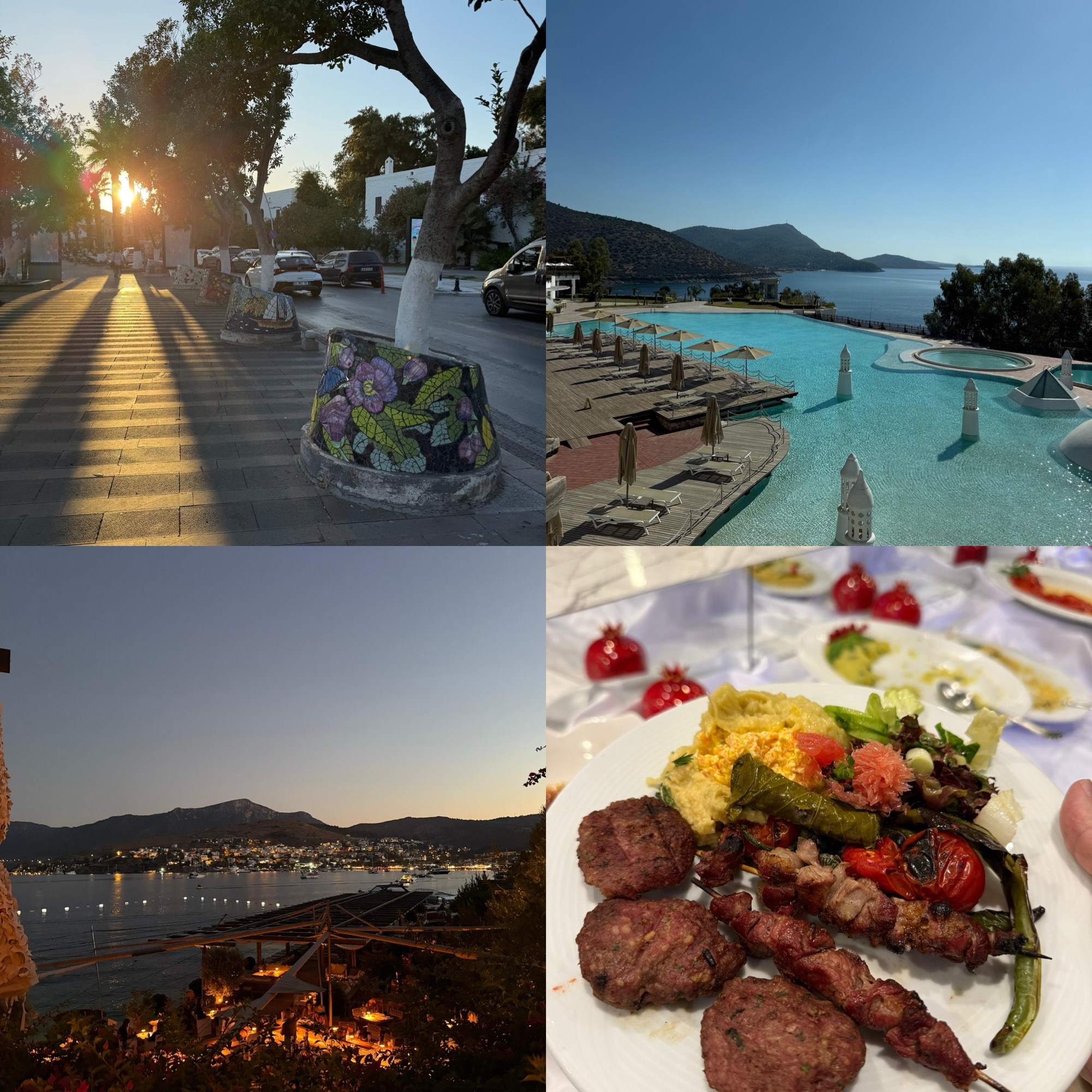 In the azure seaside town of Bodrum, Turkey, the 2025 Annual Meeting of the Property and Freedom Society unfolded as a distinctive gathering of radical thinkers, economists, historians and libertarian intellectuals. Against the leafy gardens and poolside calm of the Hotel Karia Princess, participants came together for five days of lectures, informal conversations and excursions, blending serious scholarship with relaxed settings.
In the azure seaside town of Bodrum, Turkey, the 2025 Annual Meeting of the Property and Freedom Society unfolded as a distinctive gathering of radical thinkers, economists, historians and libertarian intellectuals. Against the leafy gardens and poolside calm of the Hotel Karia Princess, participants came together for five days of lectures, informal conversations and excursions, blending serious scholarship with relaxed settings.
Note: Other photos available at:
- PFS 2025 Annual Meeting
- Stephan Kinsella, PFS 2025: Photos and Memories
- Martín Cabrera y Marisa Jarquin, First Guatemalans at the PFS
From the opening address by Gülçin and Hans-Hermann Hoppe, the tone was set for uncompromising inquiry: private property, voluntary association, and unflinching critiques of the State. The first day featured explorations of Roman slavery and the weakness of common law systems, setting an historical tone that carried through much of the meeting.
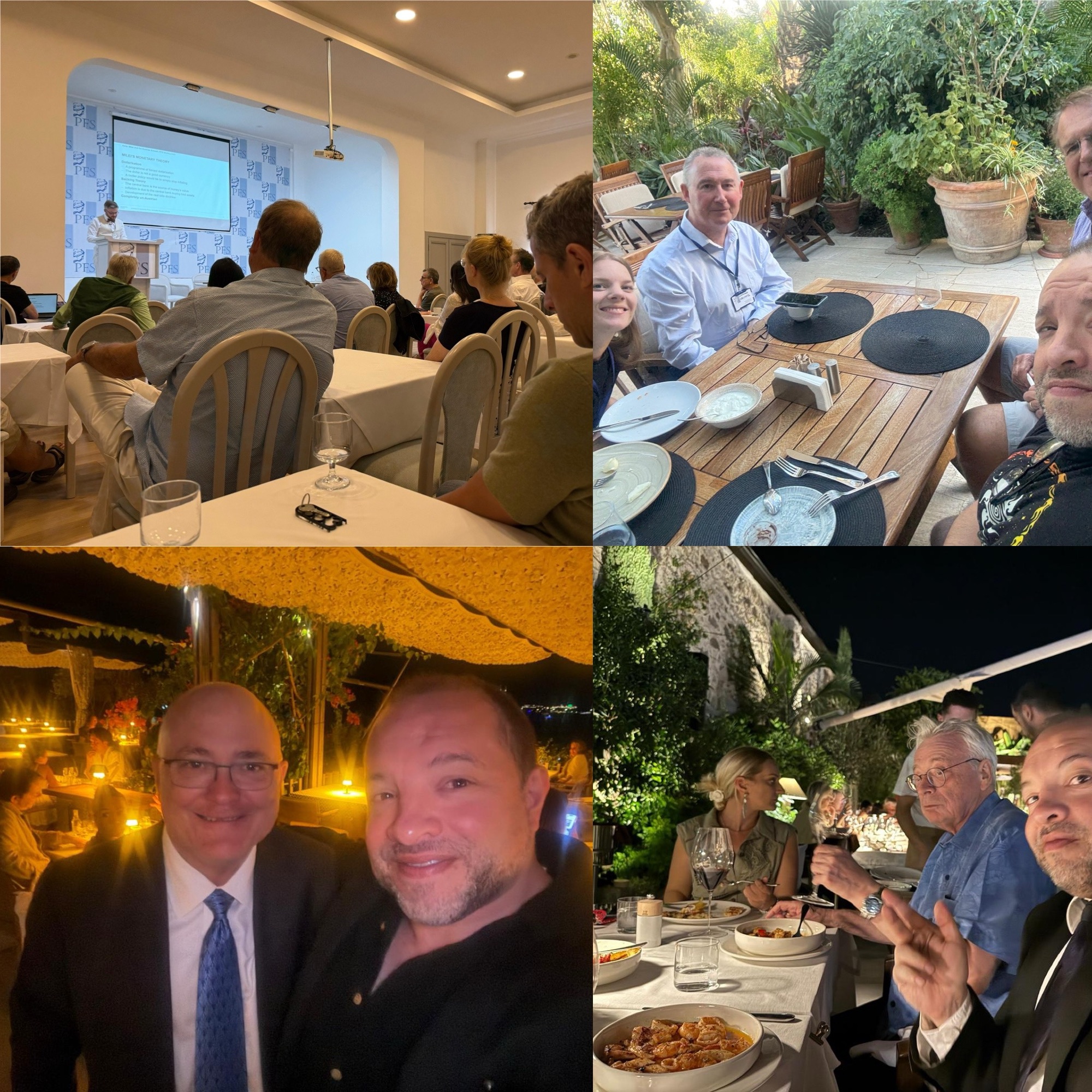
Over the course of the weekend, the programme ranged from the critique of universities as state apparatus, through the Austrian School’s perspective on bitcoin, to a provocative discussion of democratic war and “re-education” by Hoppe. Side talks explored the unusual—piracy as libertarian ancestor, Swiss anarchism, and the Palestinian-Israeli conflict through a lens of property rights. In the evening, conversations spilled into the gardens, dinners, and even a boat excursion on the Gulet—bridging the gap between formal sessions and human connection.
What came through most strongly was the fusion of depth and community. Attendees noted that while the setting felt at times like a retreat, the underlying discussions were sharp and uncompromising. New friendships were forged, ideas challenged, and pathways opened. Unlike larger conferences driven by scale, PFS keeps a “boutique” character that seems to deepen engagement.
PFS and the Family
PFS is a wholesome environment for families (my parents have partially attended while touring Turkey and met the Hoppes, and my friend Manuel A. from Ecuador is bringing his wife and children of his own already). That doesn’t mean there aren’t hours or even a whole boat (joke to be explained later on this text) for shenanigans like tasting exotic Japanese single-malt whiskies and forbidden cigars from weird regimes brought by Asia travelers and savants like Peter Wong and Tim Haffner.
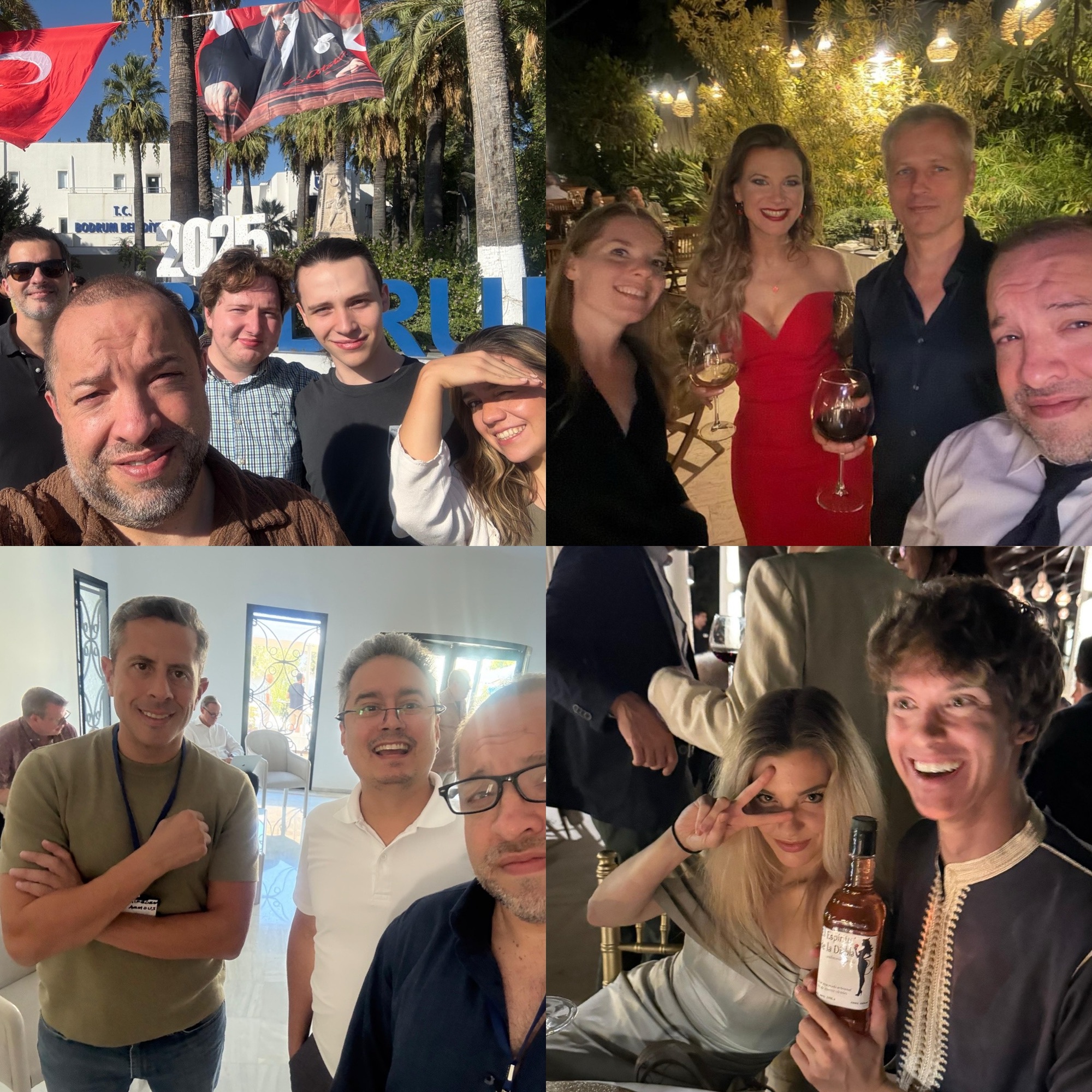
Personally as a Gen Xer (member of so-called Generation X), this is a very natural idea to me (the Hoppean natural order) coming from a South American environment like that too, where as long as you respect the family spaces with children and the formal side of things, you can let go a bit and have good natured fun too as long as you do it far away (or later in the evening) from the families. Somehow, as the PFS experience shows, almost perfectly harmonious social coexistence can exist.
In Nisbetian fashion we could say that the State wants us in a one-to-one relationship with itself and atomized as individuals. In the wider libertarian movement, we often see the perils (bad manners, taste, being strident for the sake of being strident, being boring and monothematic, etc) of an unhealthy emphasis on “individualism in a vacuum“—as Jeff Deist said in his PFS2025 talk, many of us don’t seek liberty to become this Randian or weirdo isolated —and by the way, insufferable—individuals but to be able to truly enjoy community and family without the constant disincentives and even more direct attacks from the State to the family—by the way, please consider the Mediterranean extended family as the ideal, since the “nuclear family” mold seems to be failing and broken under attack by the State. Your first community is your extended family.
But also, you have PFS.
PFS represents or incarnates the antidote and the cure, as it is a very relaxed, casual yet elegant space for families, or what I like to call now, a family of families.
PFS and the Course of History and Ideas
This year’s talks were of course very good, with some of them excellent (the heavy hitters, if I may say, and of which I would love to listen to two talks per year whenever I can attend). And the ones that were not excellent would be greatly extended and deepened on a blog post (maybe a semi-official blog could be born after this, so the posts/articles even become a pre-selection of future talks, except for the ones that wish to preserve the element of surprise).
Key Themes
- Radical property rights, freedom of contract, and freedom of association―core to the PFS mission.
- Critiques of the state, war, democracy, and education/re-education. For example: Hans‑Hermann Hoppe’s talk “Democratic Peace and Re-Education: The German Experience” deals with how democratic states wage war and use re-education.
- Historical and off-beat libertarian angles: topics ranged from Roman slavery, Swiss anarchism, to pirates and the American Revolution.
- Monetary theory and digital money/bitcoin from an Austrian School perspective – e.g., talk on “Bitcoin from the Viewpoint of the Austrian School.”
- The role of universities and the state (how education institutions are complicit in statist agendas)—one talk by Guido Hülsmann.
- Media, persuasion, ideological warfare – for instance, Jeff Deist on “Post-Persuasion America.”
Some Representative Talks
- Sean Gabb: “Roman Law and Contractual Slavery”
- Stephan Kinsella: “Where the Common Law Goes Wrong”
- Alessandro Fusillo: “The Pirates of the Caribbean as Forebears of the Libertarians and of the American Revolution”
- Saifedean Ammous: “Property Rights: The Root Cause of the Palestinian-Israeli Conflict”
- Hoppe again: “Democratic Peace and Re-Education: The German Experience”
Additionally, one of the evenings, the Douglas E. French book on movements that become rackets was launched in absentia (wishing him good health). And what a great cover that book has (wink wink).
PFS and a Respite for the Tired Soul
Stimulating conversations until very late at night about many different subjects are usual at PFS meetings. It’s this dual character—serious discourse by day, conviviality by night—that gives the conference its unique social fabric. If it was a joke, it probably would begin as “A Cornucopian libertarian, a traditional family aristocrat and a bourgeois entrepreneur go into a bar…” (the punchline being that only one leaves, because he is the three of them at PFS).
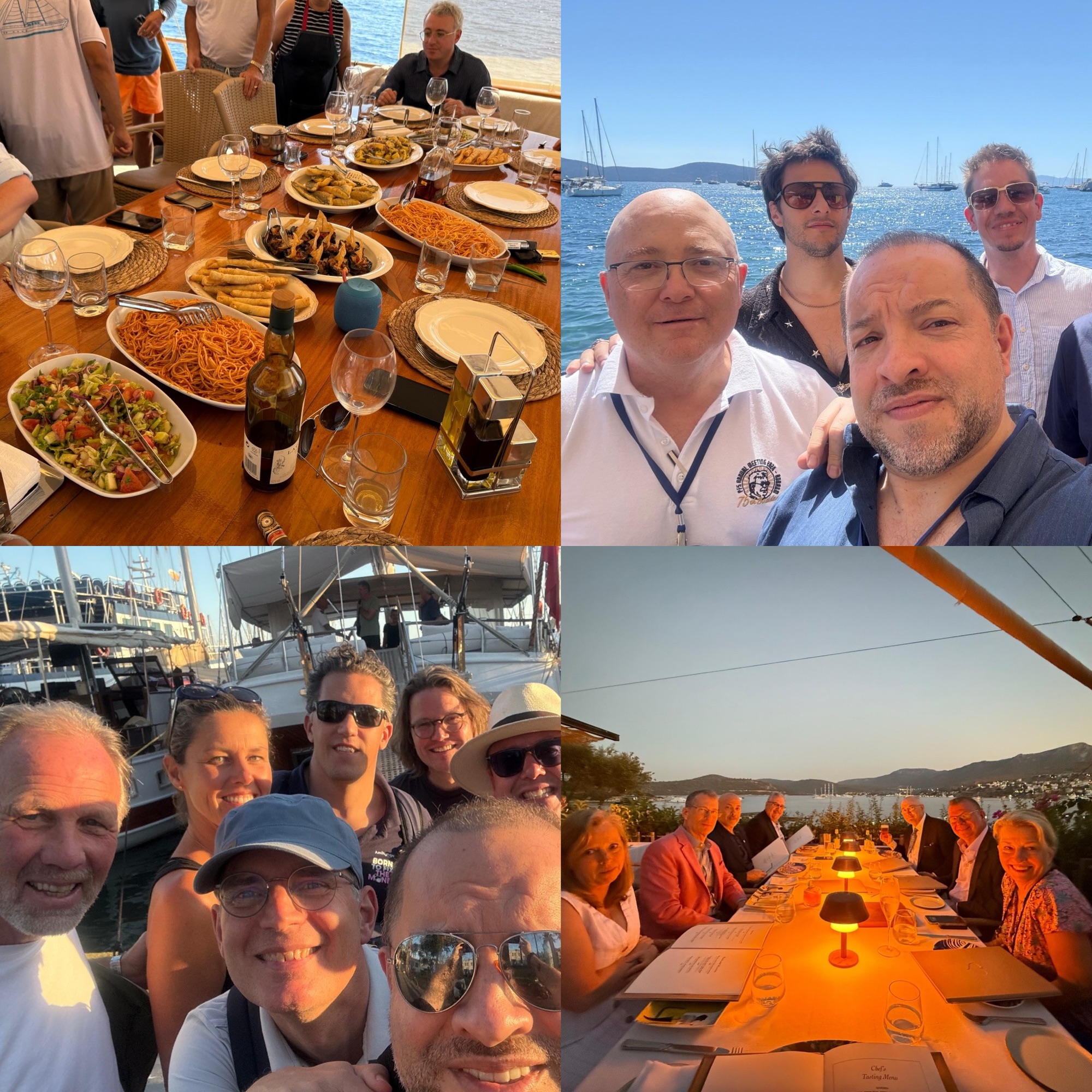 A boat trip the last day (the whisky experts, connoisseurs and amateurs go to the “bad boy” boat, you know who you are) in the Aegean Sea and some swimming or kayaking and visiting friends in the other 4–5 boats. Then some grilled fish and local vegetables and fruits. The boat day is simply soothing and a great ending to a great week.
A boat trip the last day (the whisky experts, connoisseurs and amateurs go to the “bad boy” boat, you know who you are) in the Aegean Sea and some swimming or kayaking and visiting friends in the other 4–5 boats. Then some grilled fish and local vegetables and fruits. The boat day is simply soothing and a great ending to a great week.
The scent of sea-salt on the breeze and the gentle lap of waves set the stage for conversations that often felt as expansive as the Aegean horizon. The boat day delivers on Rothbard’s call for us to be joyful libertarians. Once the annual meeting ends many report they feel a distinctive “post-PFS blues” for weeks or months.
Here is a good place for a shout out to new friends like Max from Spain (who co-authored the “Universal Principles of Liberty,”, John Leask from Houston, Manuel Ogando from Portugal, the “Guatemala Kids” Marisa and Martín, and their new Dartagnan, León Isidoro, as well as Hennah from Belgium.
As for old friends (old friendship, as they are not old) it’s always great to see people like Thomas and Renata—to the salsa dancing this year we added our first karaoke unofficial “Rothbardian Idol”—Georg, Jerome, Norman Stephan, Greg and Joy and Thomas and Carl and Karen from the “Kinsellian restaurant–shenanigans entourage” (proud member myself, too), Tom from Belgium (wishing you a prompt and full health recovery), Marnik, Profs. Dilorenzo and Hülsmann, Jay Baykal, etc. who are too many to list here plus I think we all value a reasonable amount of privacy which includes being free from the prying eyes of political idiots and other unsavory characters from our home countries. There is certainly something to a friendship forged at PFS, a certain love based itself to a large degree on loving so many things and admiring many great thinkers together.
PFS is what Ayn Rand called “seeing things as they could and should be.” Except Ayn Rand herself or her eternally-teenager fans (no offense, Kinsella; just kidding, he is almost fully recovered) herself didn’t build a community of trust, open discussion, non-toxic leadership and above all, of families with healthy individuation (families composed of individuals with strong and yet delightful personalities) but not simply isolated, neuroticized individuals.
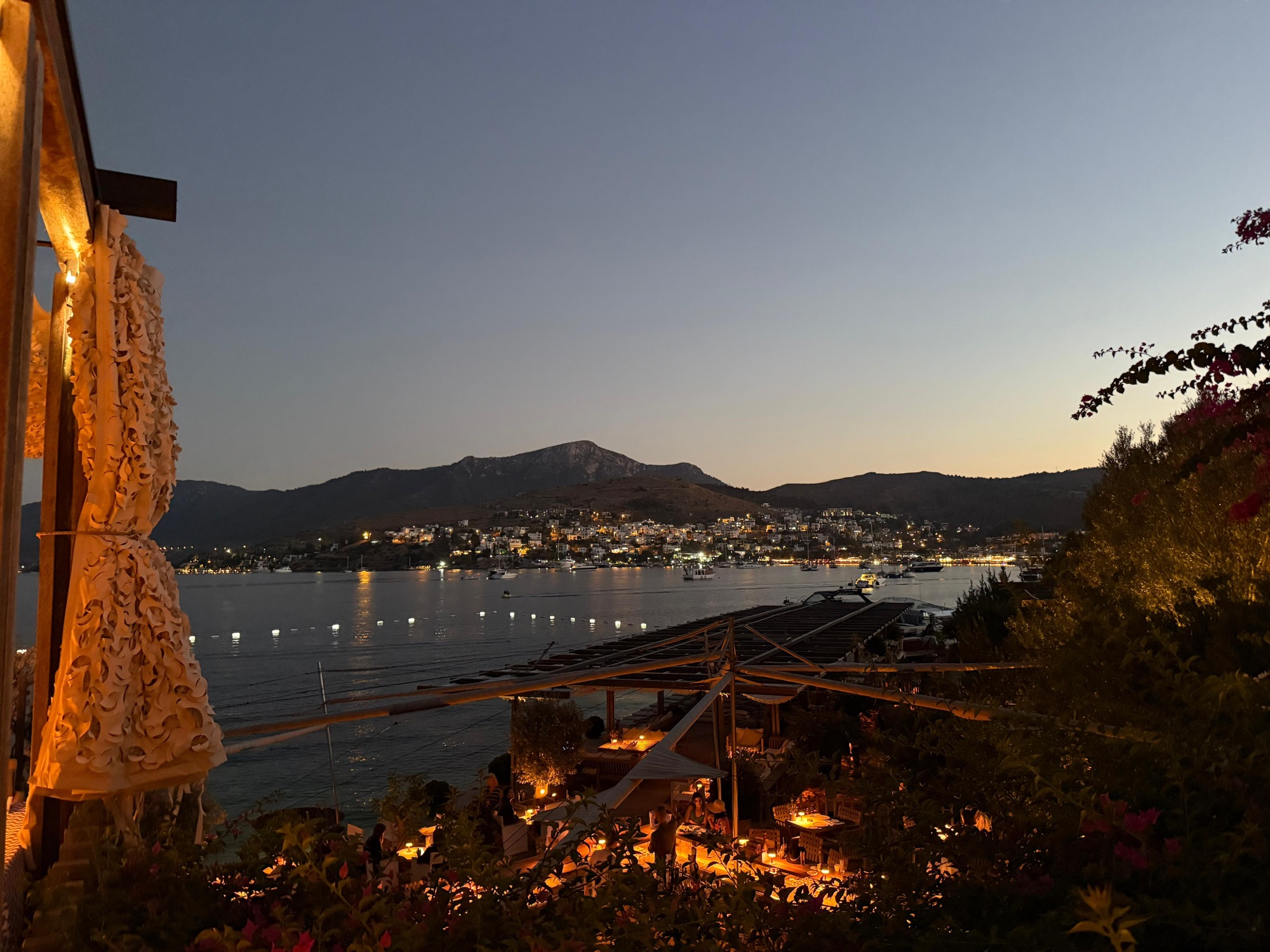 It is indeed inspiring to see others “see it”: the dream of a peaceful, prosperous and decentralized world where politics can be kept at the local level and mostly ignored. Sailing together—not only metaphorically thanks to the boat day—to a better future.
It is indeed inspiring to see others “see it”: the dream of a peaceful, prosperous and decentralized world where politics can be kept at the local level and mostly ignored. Sailing together—not only metaphorically thanks to the boat day—to a better future.
For these reasons and many others, I commend and applaud the work that Gülçin and Hans-Hermann Hoppe have done through the years at the PFS (with much devotion and untiring support from Jörg Guido Hülsmann and N. Stephan Kinsella, if I may say so), and for all of us.
Your friend,
Juan Fernando Carpio ([email protected])
Quito, Ecuador / Oct 2025
P.S. In case you still haven’t read my own contribution to the Hoppe festschrift (tribute) published and released at last year’s PFS, “A Hoppean Alternative to Hayek’s ‘Spontaneous Order,’” in A Life in Liberty: Liber Amicorum in Honor of Hans-Hermann Hoppe, Jörg Guido Hülsmann and Stephan Kinsella, eds. (Houston, Texas: Papinian Press, 2024) I would love your comments.
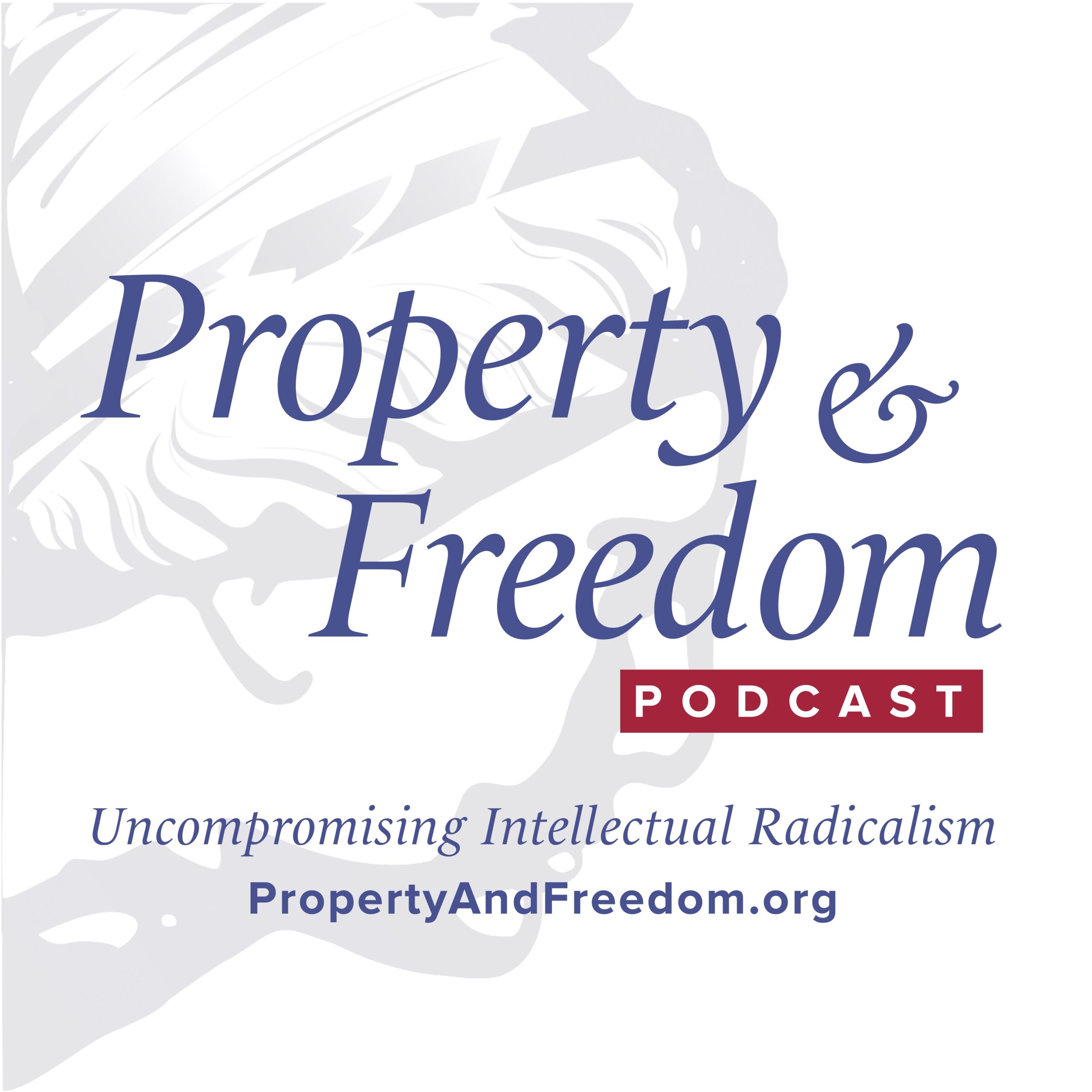

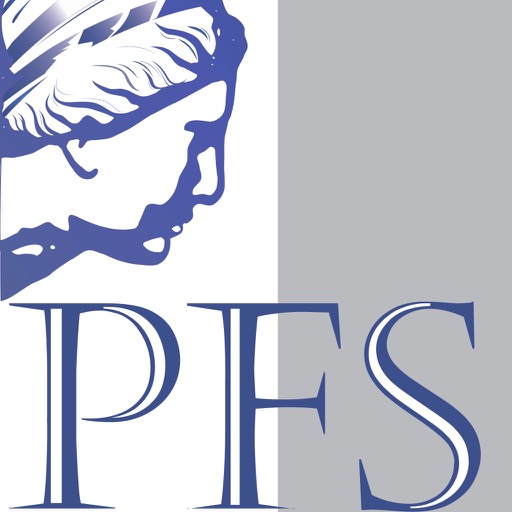
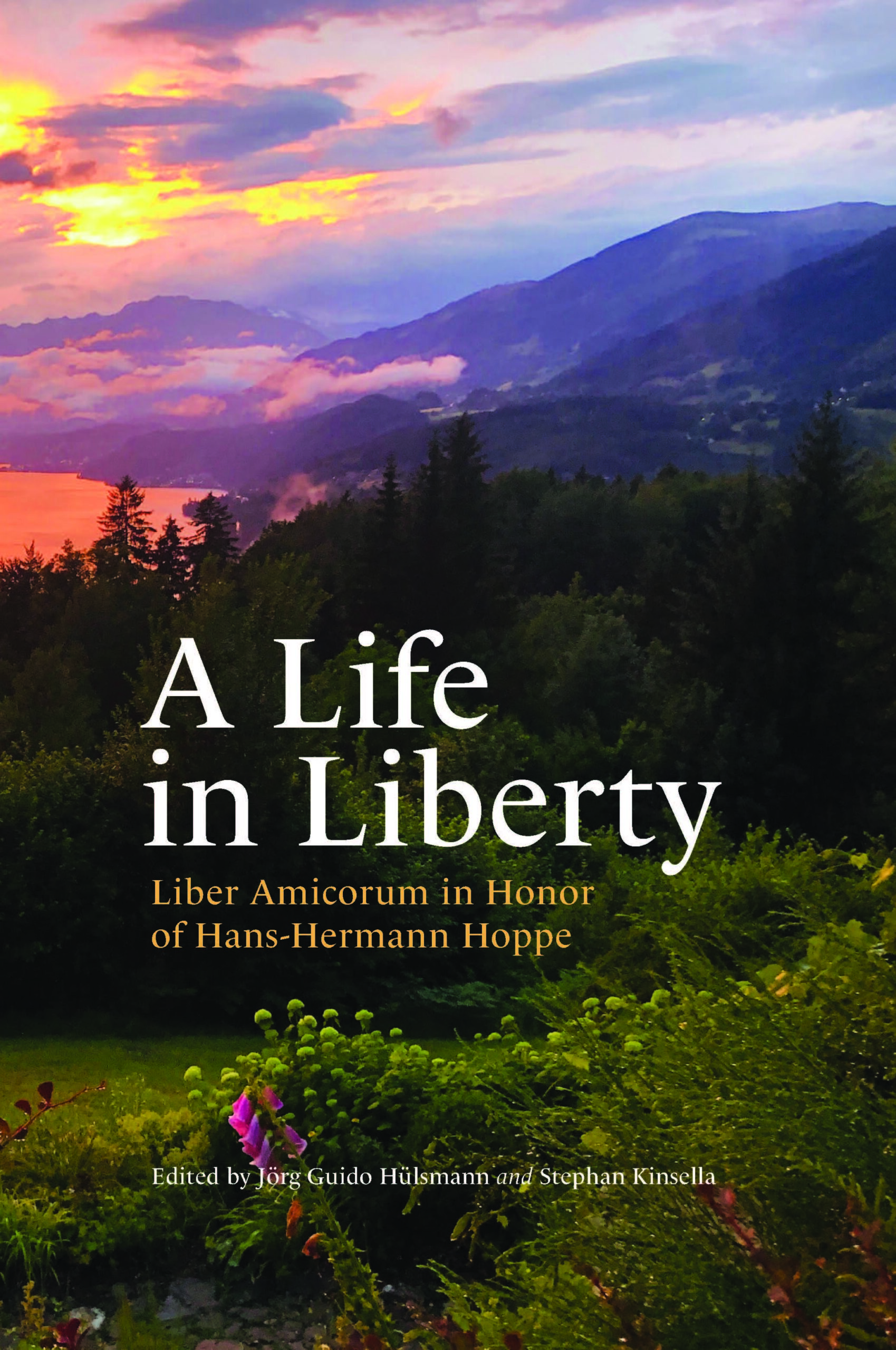
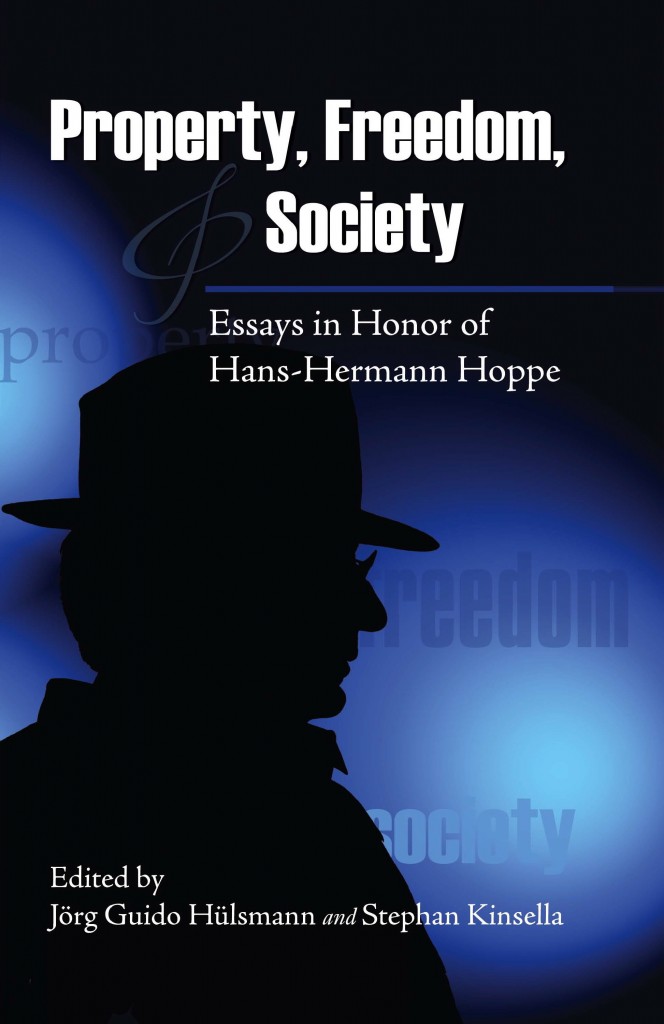
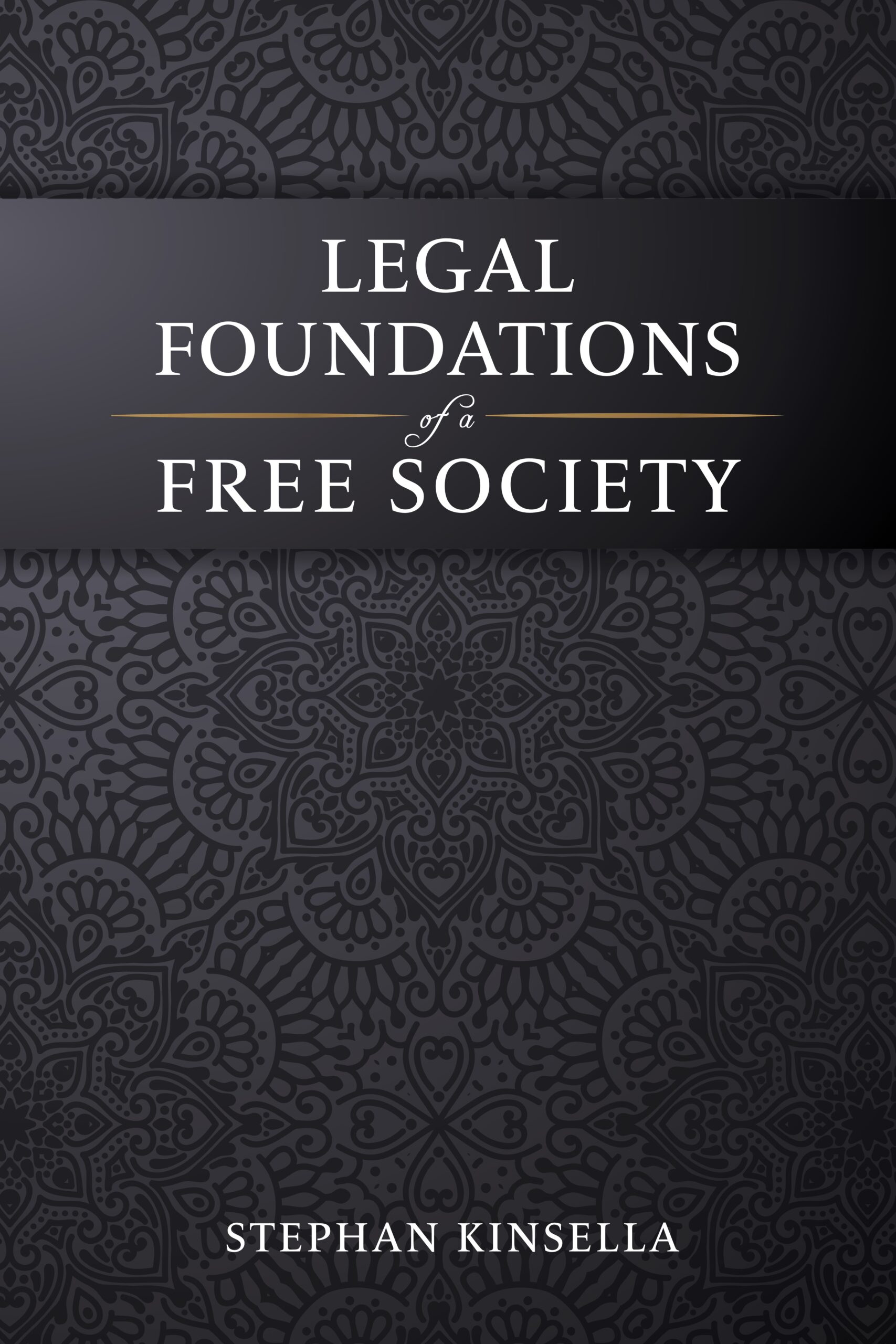

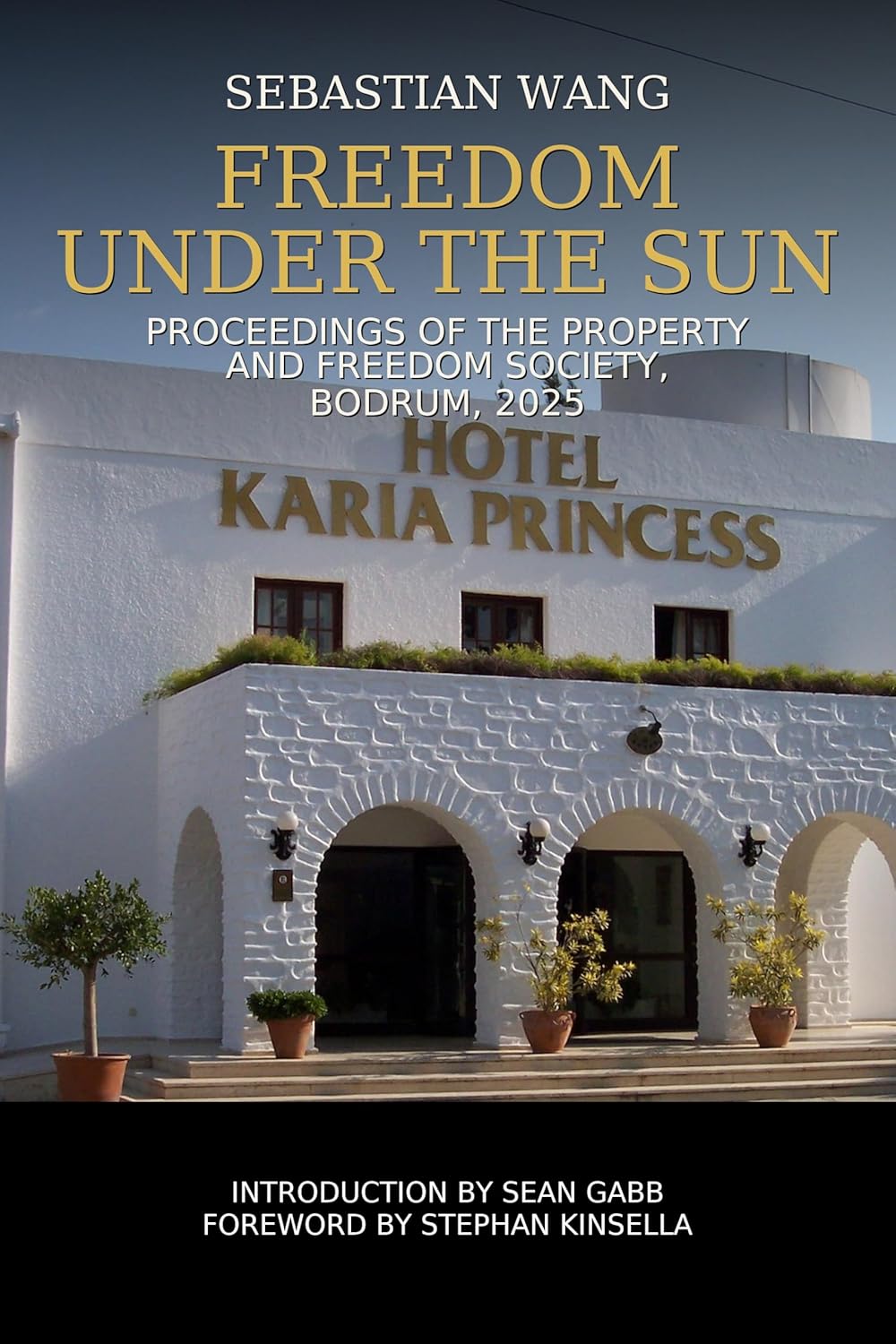
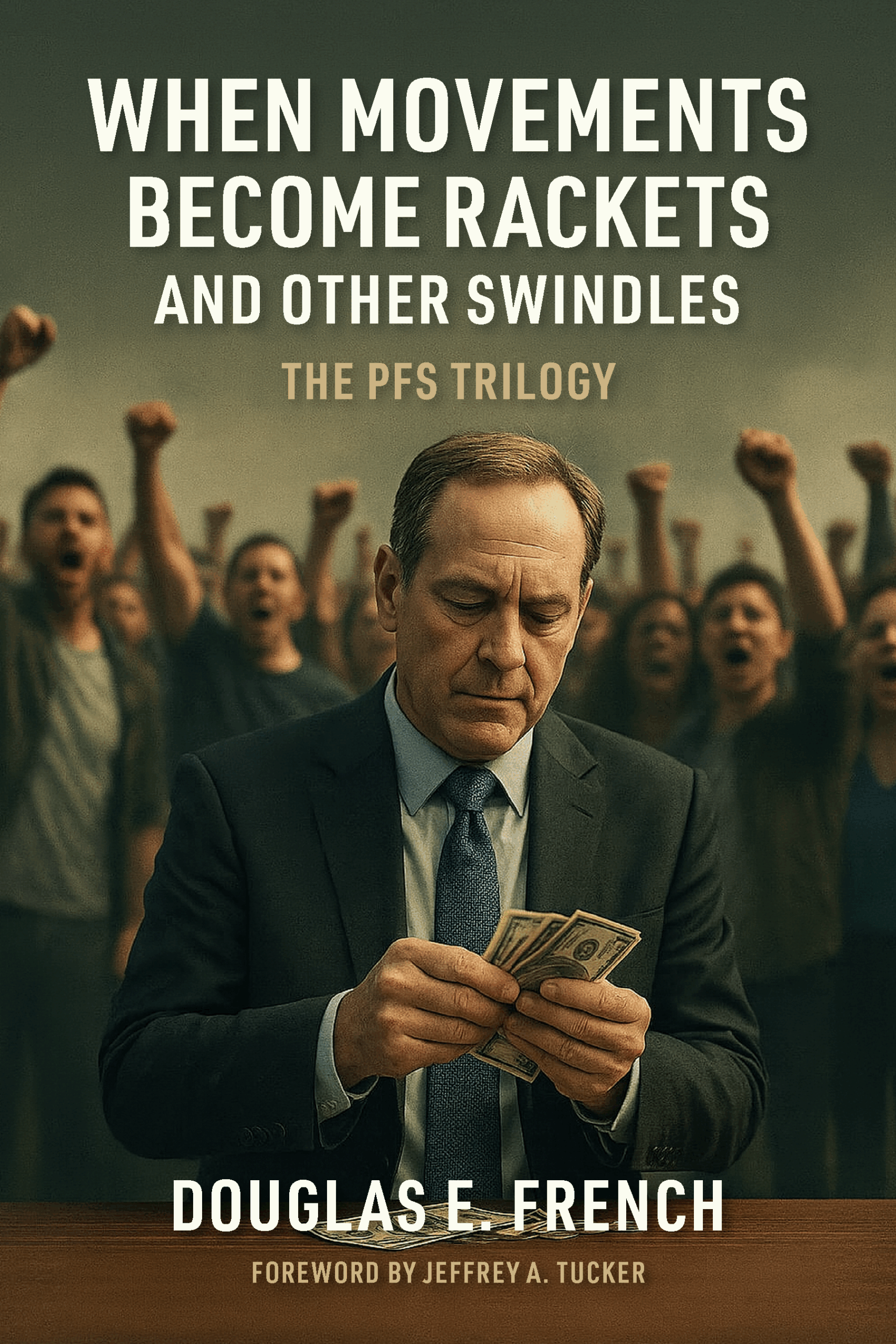


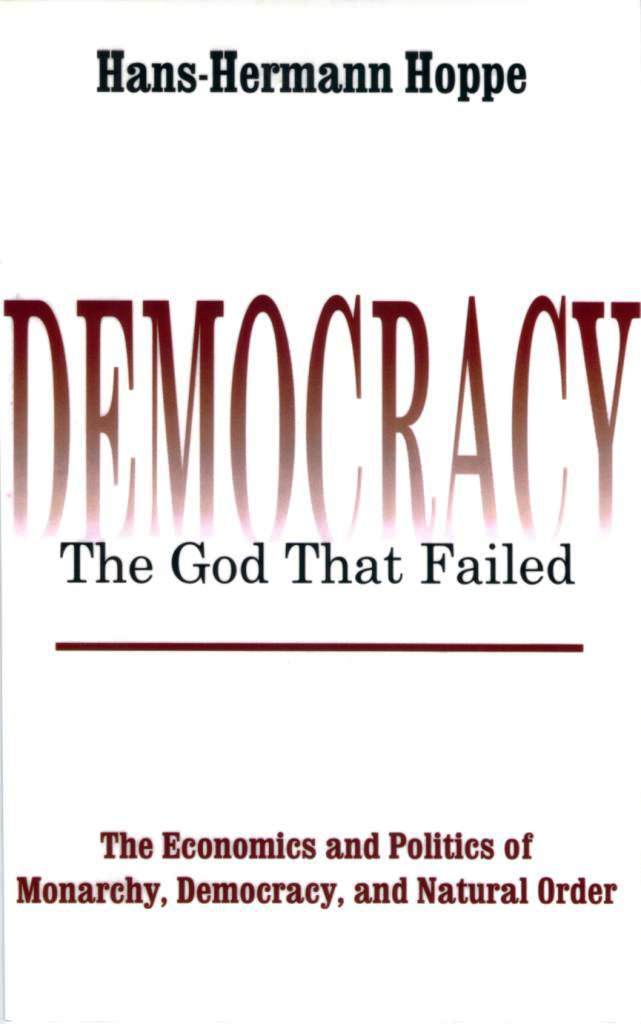


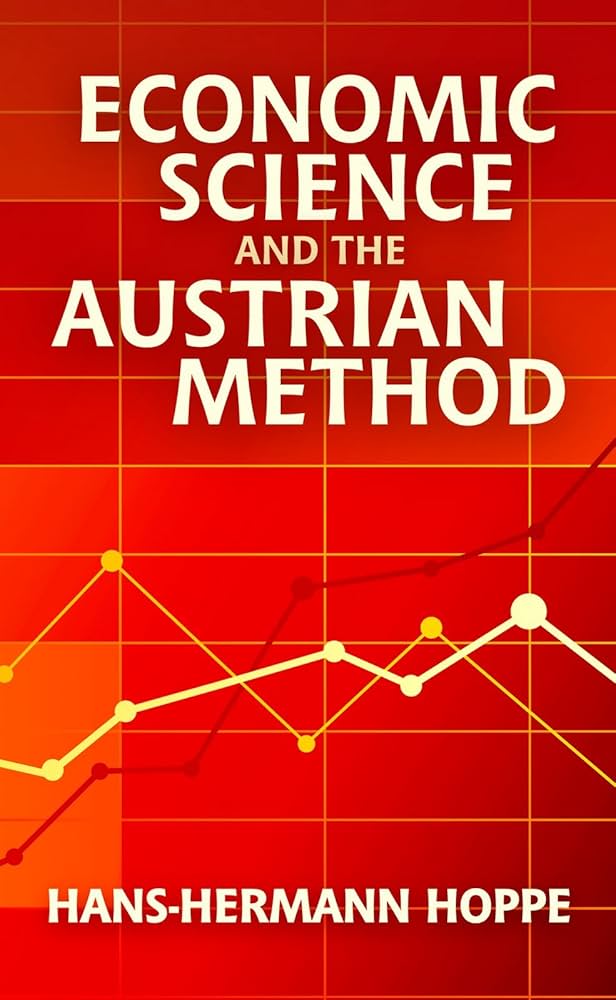
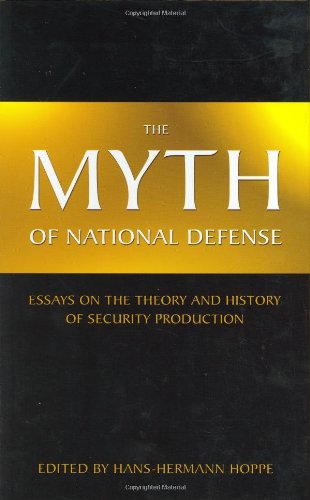
You must log in to post a comment. Log in now.